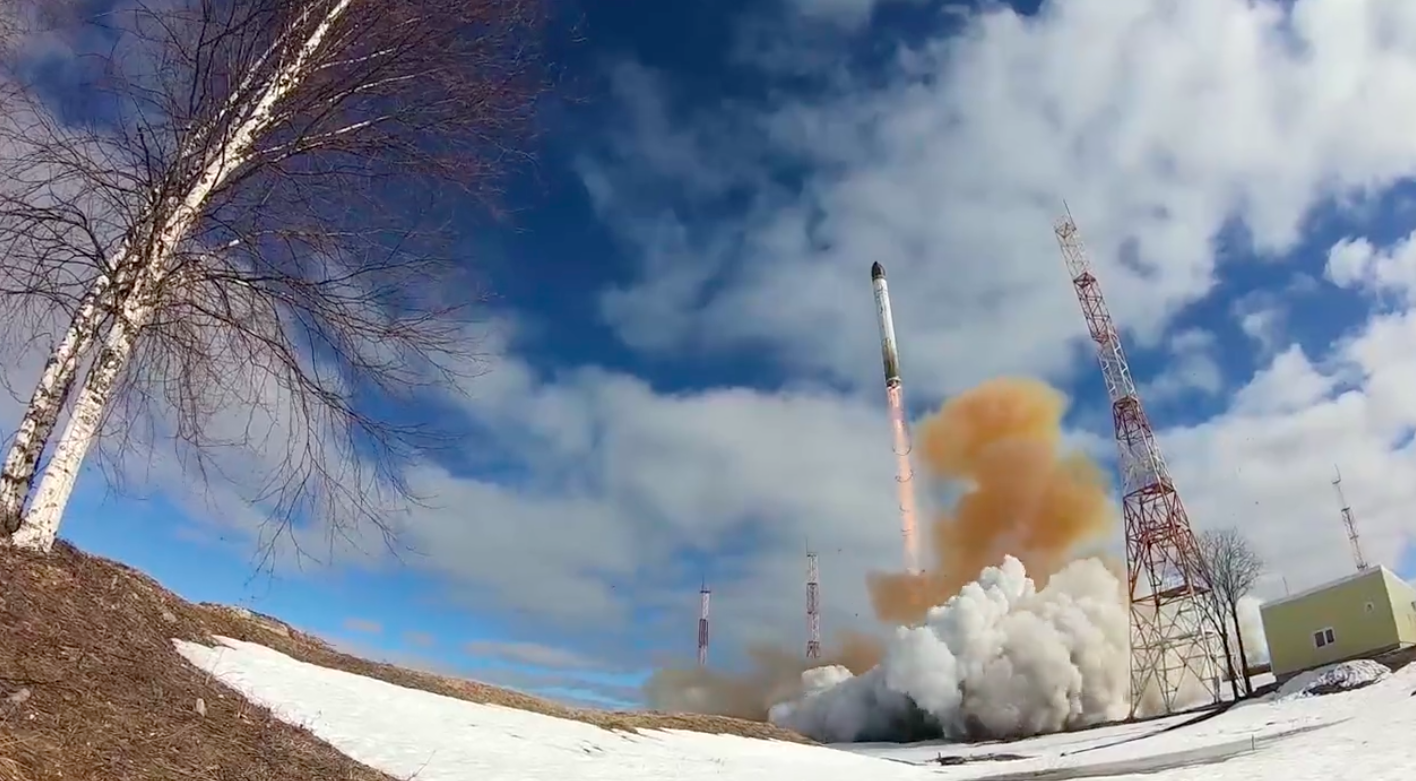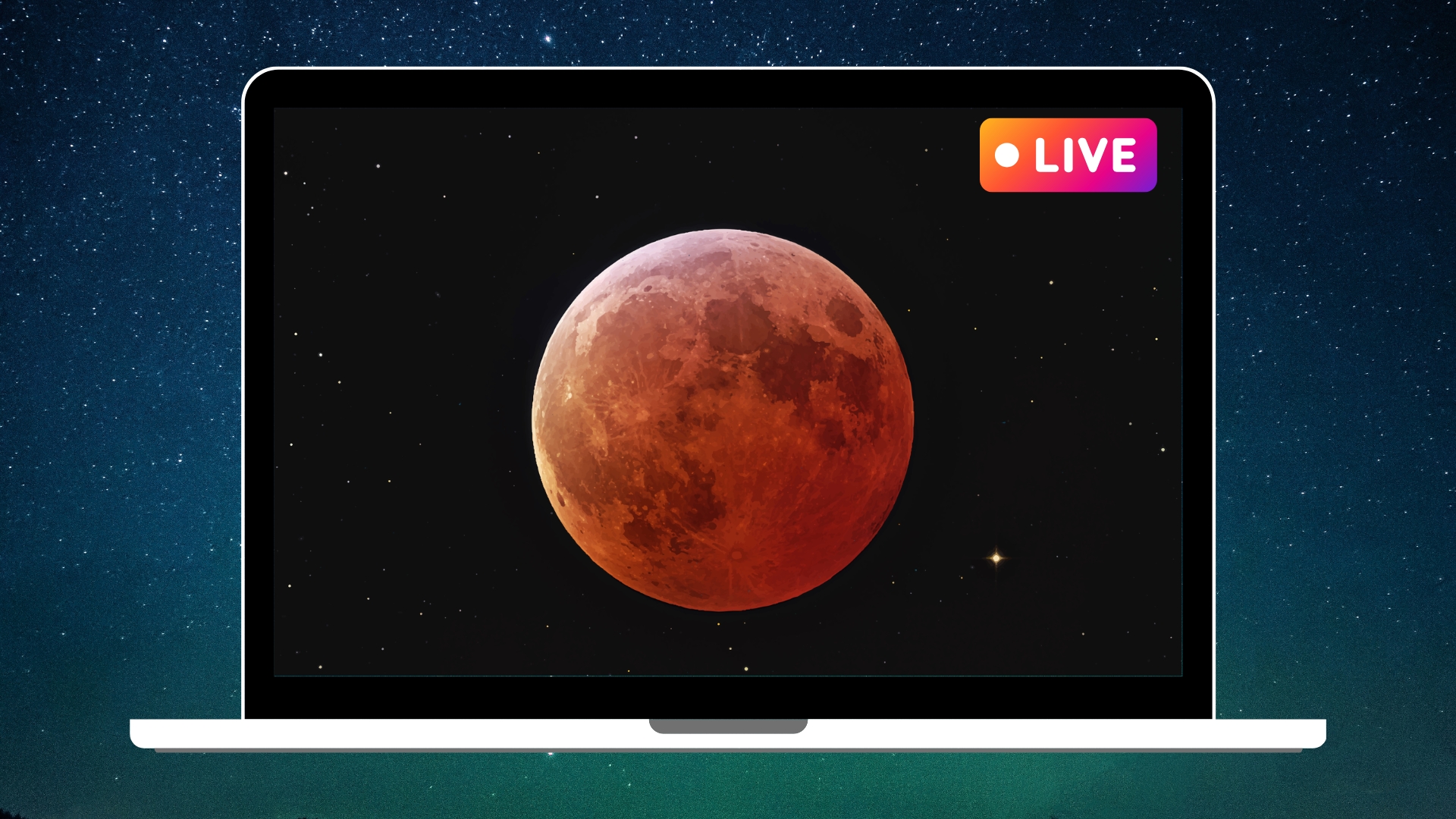Russia conducts 1st full flight test of new 'Sarmat' intercontinental ballistic missile

Breaking space news, the latest updates on rocket launches, skywatching events and more!
You are now subscribed
Your newsletter sign-up was successful
Want to add more newsletters?
Russia just performed the first full test launch of its next-generation intercontinental ballistic missile (ICBM).
The "Sarmat" ICBM launched Wednesday (April 20) from Plesetsk Cosmodrome in northern Russia, the Russian Ministry of Defense announced via Twitter, also posting a video of the silo liftoff. Following takeoff, the Sarmat's dummy warhead successfully hit its intended target on the Kamchatka Peninsula in Russia's far east, according to Russian officials.
The Sarmat "has the highest tactical and technical characteristics and is capable of overcoming all modern means of anti-missile defense. It has no analogues in the world and will not have for a long time to come," Russian President Vladimir Putin said on Russian TV shortly after the test flight, according to The Guardian.
"This truly unique weapon will strengthen the combat potential of our armed forces, reliably ensure Russia’s security from external threats and provide food for thought for those who, in the heat of frenzied aggressive rhetoric, try to threaten our country," Putin said.
Related: Russia's invasion of Ukraine as seen in satellite photos
Ukraine invasion's impacts on space exploration: Live updates
The Sarmat is the successor to Russia's Voyevoda ICBM, which is also known as the SS-18 "Satan" Mod-5, according to the defense intelligence site Janes. Like the SS-18, the new vehicle is thought to be capable of hitting targets up to 11,200 miles (18,000 kilometers) away.
The three-stage Sarmat has been in development for years. Sarmat vehicles have undergone at least three "ejection tests" since December 2017, but Wednesday's launch was the first full test flight for the ICBM, Janes reported. (During ejection tests, missiles pop out their underground silos but don't go very far.)
Breaking space news, the latest updates on rocket launches, skywatching events and more!
Each individual Sarmat missile will likely be equipped with 10 or more warheads, The Guardian reported, citing the US Congressional Research Service. But the ICBM is not yet ready to enter service; this was just its first real test flight, after all.
And we shouldn't necessarily expect the Sarmat to shift the global balance of power when it does become operational, analysts say, noting its apparent broad similarities to the SS-18. Indeed, experts told CNN that Putin's florid pronouncement about the Sarmat likely amounts to "nuclear saber-rattling" that's designed primarily to deflect attention away from problems Russia is experiencing during its ongoing invasion of Ukraine.
Mike Wall is the author of "Out There" (Grand Central Publishing, 2018; illustrated by Karl Tate), a book about the search for alien life. Follow him on Twitter @michaeldwall. Follow us on Twitter @Spacedotcom or on Facebook.

Michael Wall is a Senior Space Writer with Space.com and joined the team in 2010. He primarily covers exoplanets, spaceflight and military space, but has been known to dabble in the space art beat. His book about the search for alien life, "Out There," was published on Nov. 13, 2018. Before becoming a science writer, Michael worked as a herpetologist and wildlife biologist. He has a Ph.D. in evolutionary biology from the University of Sydney, Australia, a bachelor's degree from the University of Arizona, and a graduate certificate in science writing from the University of California, Santa Cruz. To find out what his latest project is, you can follow Michael on Twitter.
